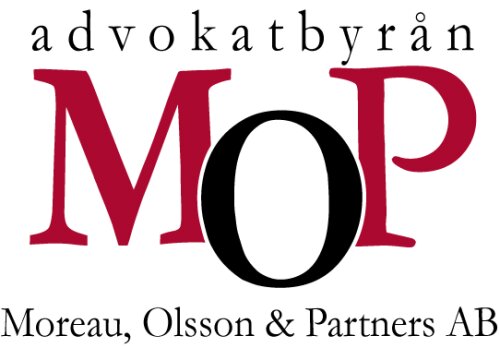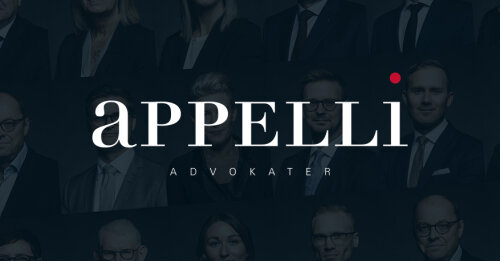Best Faith-Based Law Lawyers in Sweden
Share your needs with us, get contacted by law firms.
Free. Takes 2 min.
Or refine your search by selecting a city:
List of the best lawyers in Sweden
About Faith-Based Law in Sweden
Faith-Based Law in Sweden operates within a unique legal framework that acknowledges the secular nature of the state while respecting individuals' rights to religious freedom. In Sweden, faith-based issues are often intertwined with family law, immigration, and issues relating to religious institutions. The laws provide mechanisms for individuals to practice their religion freely, while also maintaining a separation between religion and state law. This balance ensures that religious practices do not infringe on the rights of others or conflict with Swedish national laws.
Why You May Need a Lawyer
There are various scenarios where an individual might seek legal advice regarding Faith-Based Law in Sweden. Some of the common situations include:
- Interpretation of how specific religious practices intersect with national laws, especially in family matters like marriage or divorce.
- Immigration issues concerning asylum seekers claiming religious persecution.
- Disputes related to religious institutions or their operation within the legal framework of Sweden.
- Employment discrimination based on religion.
- Issues related to humanitarian rights and the freedom to practice religion without persecution.
Local Laws Overview
Sweden's legal system allows significant freedom for religious communities to self-govern in matters pertaining to their religious practices, within the confines of national laws. Key aspects relevant to Faith-Based Law include:
- The Instrument of Government, which enshrines the freedom of religion and belief.
- Equality laws that guard against discrimination on the grounds of religion or belief.
- Family law provisions, which respect religious marriages while ensuring that they align with civil marriage laws.
- Immigration laws that may provide asylum or other protections based on religious persecution.
Frequently Asked Questions
What is Faith-Based Law?
Faith-Based Law refers to legal matters that involve religious beliefs and practices. It often intersects with civil law in areas such as marriage, divorce, inheritance, and religious freedom.
Can religious laws override national laws in Sweden?
No, national laws in Sweden take precedence. However, practices accommodated under religious laws can be recognized as long as they do not conflict with Swedish laws.
Is religious discrimination illegal in Sweden?
Yes, it is illegal to discriminate against individuals based on their religion or beliefs under Sweden's discrimination laws.
How does Swedish law handle religious marriages?
Religious marriages can be performed, but they must be registered as civil marriages to be legally recognized under Swedish law.
Are there any protections for religious practices in the workplace?
Yes, Swedish law requires employers to make reasonable accommodations for religious practices, provided they do not cause undue hardship.
What should I do if I experience religious persecution in Sweden?
You should report it to the police and may seek legal advice to understand your rights and the available remedies.
Are religious institutions subject to any specific legal requirements in Sweden?
Yes, they must adhere to general legal requirements, such as those concerning tax regulations, employment law, and anti-discrimination laws.
Can faith affect an immigration case in Sweden?
Faith can be a relevant factor, particularly if the applicant is seeking asylum due to religious persecution in their home country.
How are inheritance disputes handled in relation to Faith-Based Law?
Inheritance disputes involving religious laws must be resolved under Swedish inheritance laws, although religious customs may be considered during settlements.
Do Swedish laws allow for the practice of religious dietary restrictions in public institutions?
Yes, public institutions in Sweden often accommodate religious dietary restrictions, respecting individuals' freedom to practice their religion.
Additional Resources
For individuals seeking further understanding or assistance with Faith-Based Law in Sweden, the following resources may be helpful:
- The Swedish Migration Agency for immigration and asylum concerns.
- The Equality Ombudsman (Diskrimineringsombudsmannen) for issues of discrimination.
- Local religious councils or interfaith organizations that can provide guidance on religious matters.
- Legal aid services offered by various non-profit organizations.
Next Steps
If you find yourself needing legal assistance in Faith-Based Law, consider the following steps:
- Identify the specific legal issue or concern you have related to faith-based matters.
- Contact a lawyer experienced in Faith-Based Law or relevant areas such as family law or immigration.
- Gather all necessary documentation and information pertinent to your case.
- Consult available resources and services mentioned above for additional support and information.
- Consider reaching out to local religious or community organizations that may offer guidance or assistance.
Lawzana helps you find the best lawyers and law firms in Sweden through a curated and pre-screened list of qualified legal professionals. Our platform offers rankings and detailed profiles of attorneys and law firms, allowing you to compare based on practice areas, including Faith-Based Law, experience, and client feedback.
Each profile includes a description of the firm's areas of practice, client reviews, team members and partners, year of establishment, spoken languages, office locations, contact information, social media presence, and any published articles or resources. Most firms on our platform speak English and are experienced in both local and international legal matters.
Get a quote from top-rated law firms in Sweden — quickly, securely, and without unnecessary hassle.
Disclaimer:
The information provided on this page is for general informational purposes only and does not constitute legal advice. While we strive to ensure the accuracy and relevance of the content, legal information may change over time, and interpretations of the law can vary. You should always consult with a qualified legal professional for advice specific to your situation.
We disclaim all liability for actions taken or not taken based on the content of this page. If you believe any information is incorrect or outdated, please contact us, and we will review and update it where appropriate.
Browse faith-based law law firms by city in Sweden
Refine your search by selecting a city.















